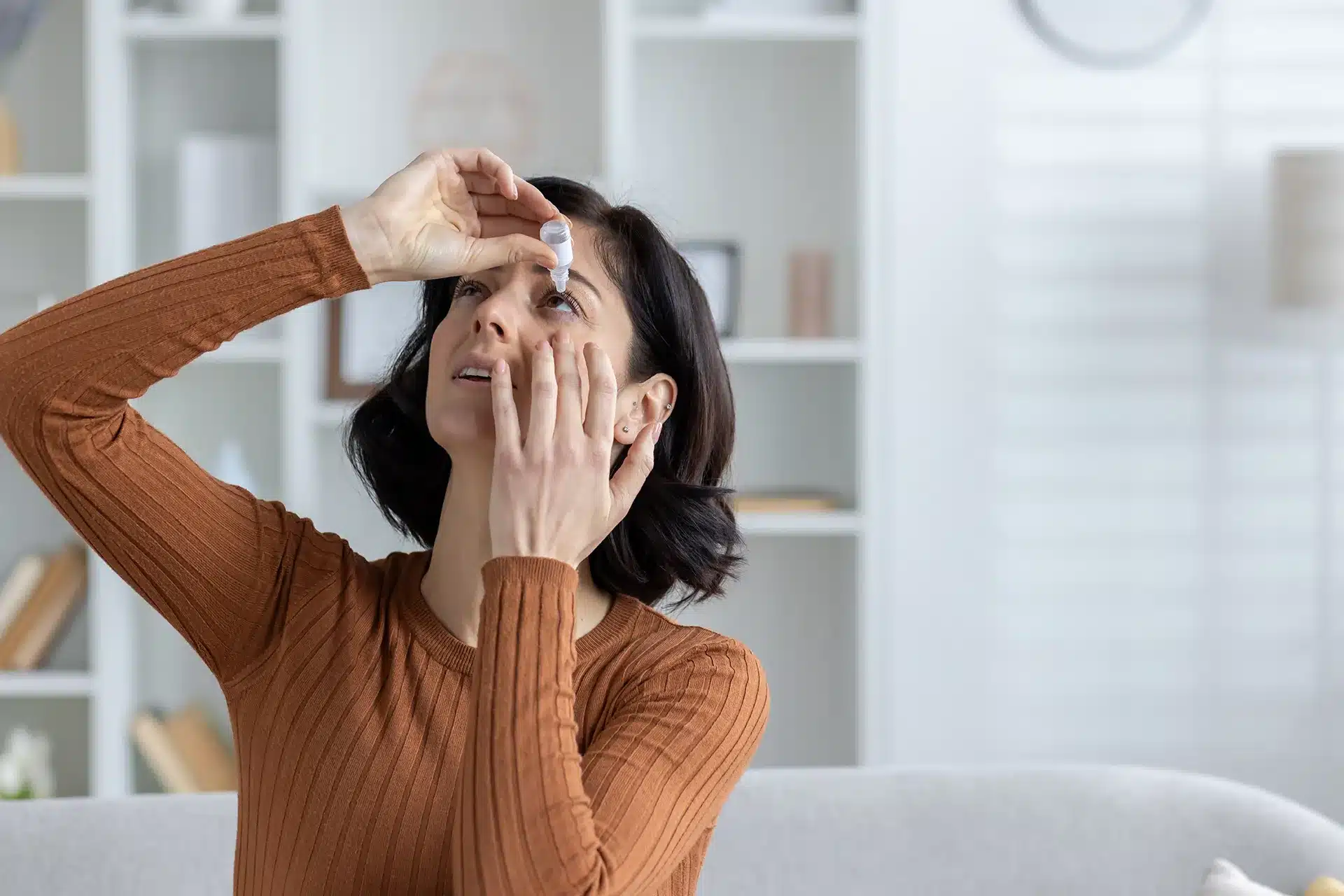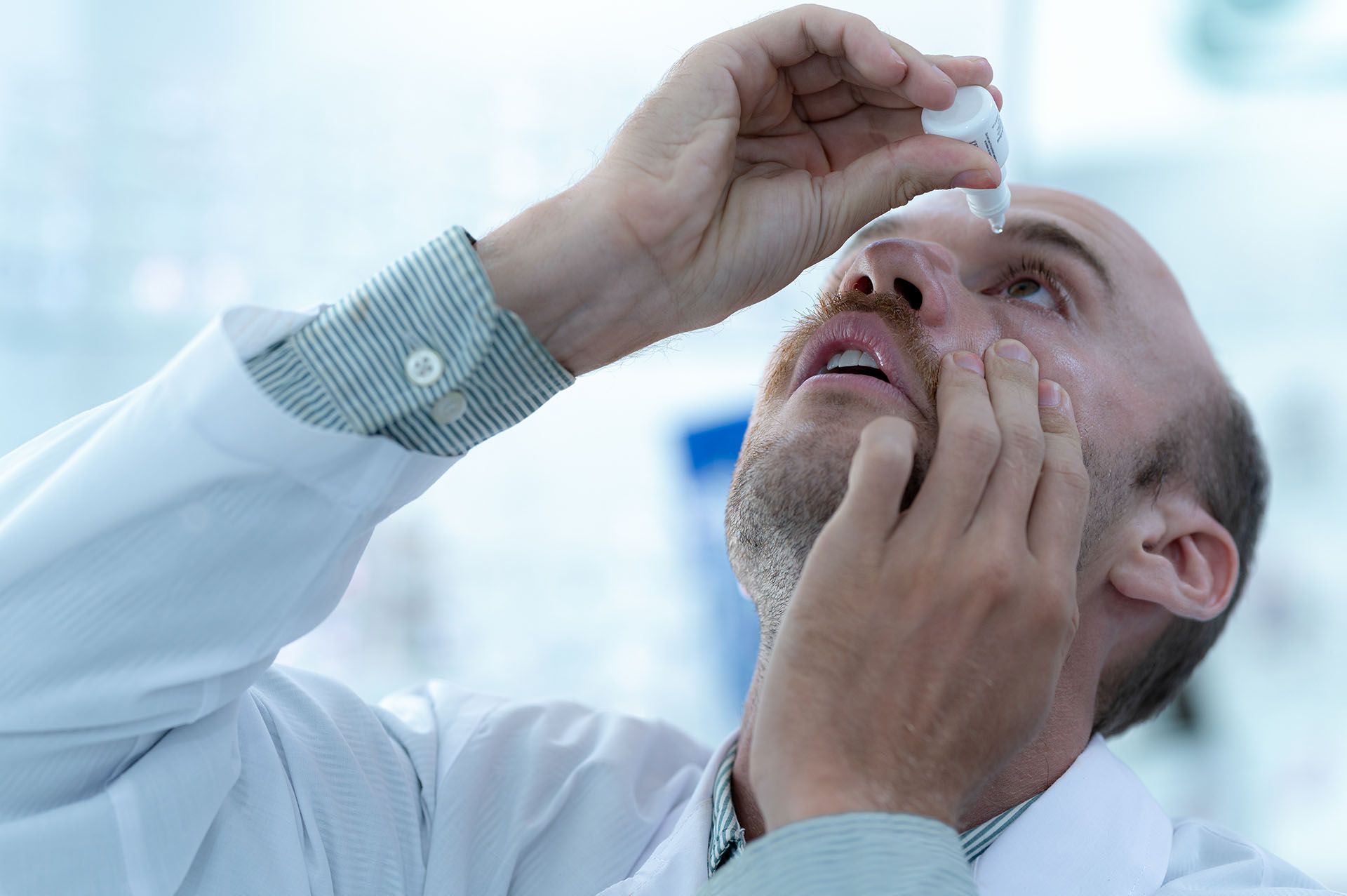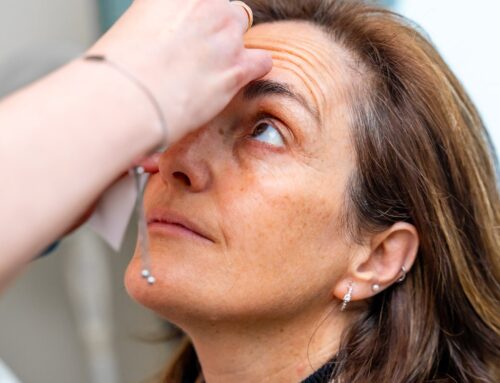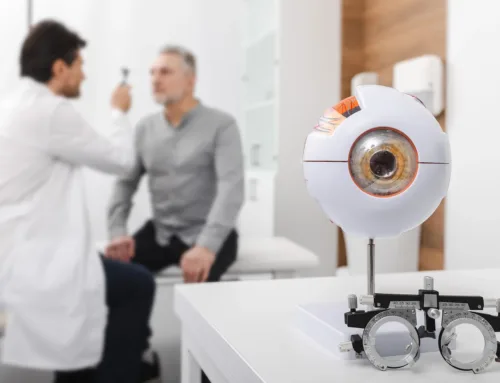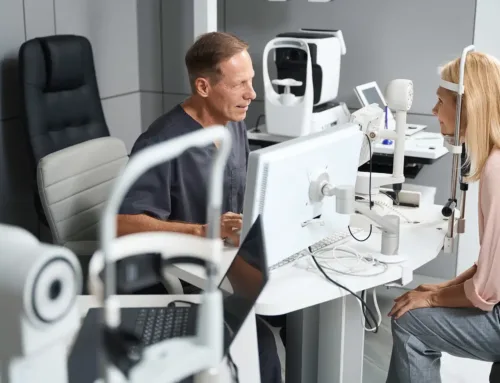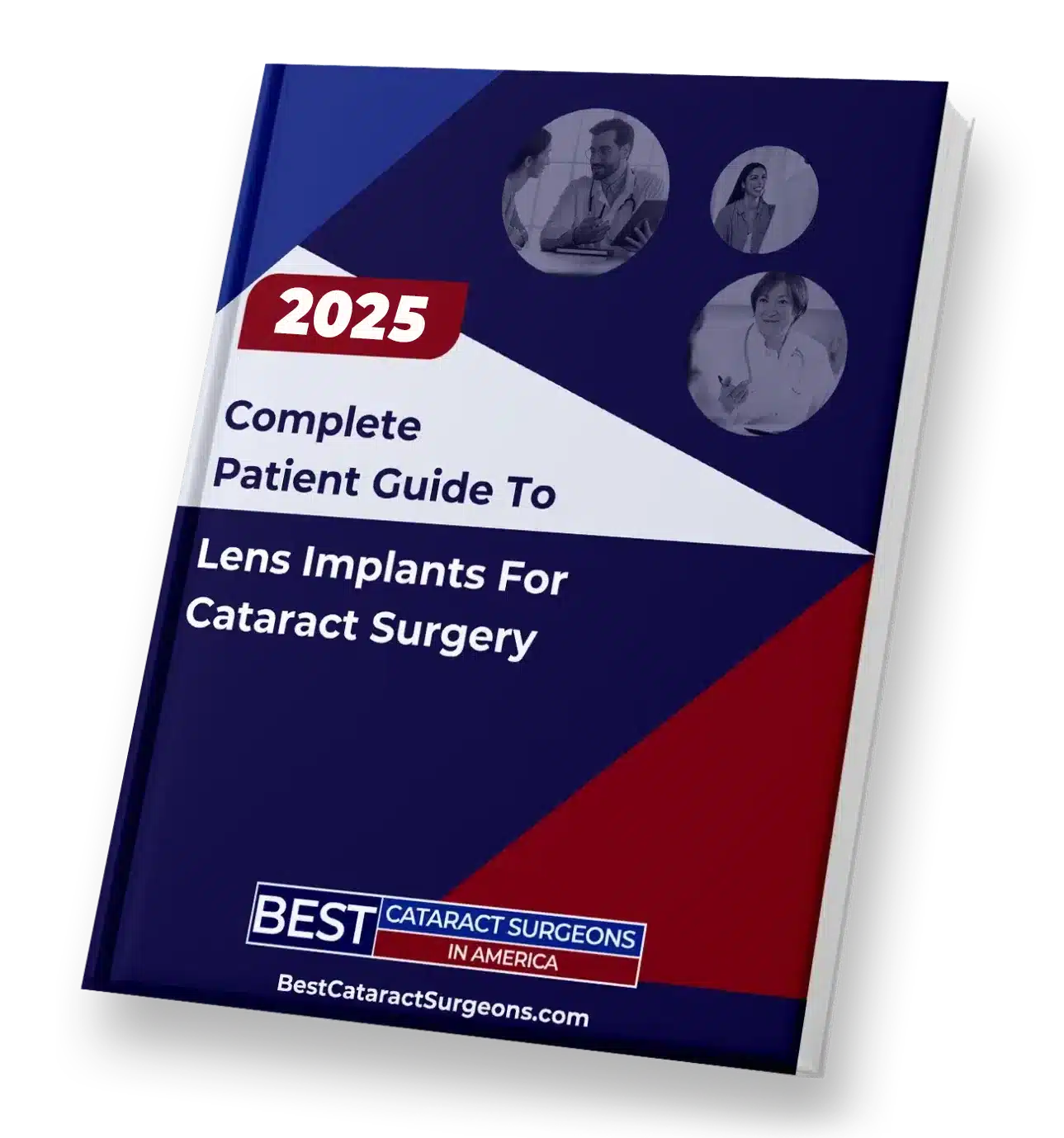Cataract surgery is a safe and highly successful procedure that restores vision by removing the clouded natural lens and replacing it with an artificial intraocular lens (IOL). But, like any surgical procedure, it can sometimes lead to side effects, like exacerbating pre-existing dry eye or inducing new-onset dry eye symptoms.
What Is Dry Eye?
Dry eye is a condition where your eyes either don’t produce enough tears or they evaporate too quickly due to an inadequate tear film. The tear film is a thin layer of oils, water, and mucus, which keeps your eyes lubricated and protects your vision. When disrupted, you can experience discomfort, irritation, vision problems, and potential damage to the cornea and conjunctiva.
How Can Cataract Surgery Cause Dry Eye?
1. Tear Film Disruption. The surgical incision and manipulation of ocular tissues can alter the tear film dynamics, leading to an unstable tear film and increased tear evaporation.
2. Corneal Nerve Damage. Corneal nerves play a crucial role in tear production and blinking reflexes. Surgical trauma can temporarily impair these nerves, resulting in incomplete blinking and reduced tear secretions.
3. Inflammation. The inflammatory response triggered by the surgical procedure can decrease tear production and alter the tear film composition.
4. Medication Side Effects. Postoperative eye drops, such as antibiotics, corticosteroids, and preservatives, may exacerbate dry eye symptoms by disrupting the ocular surface or slowing healing.
5. Light Exposure. The bright microscope light used during surgery can reduce the number of goblet cells responsible for producing the mucin layer of the tear film.
6. Pre-existing Dry Eye. If you had dry eyes before the surgery, then it can exacerbate them.
Symptoms of Dry Eye After Cataract Surgery
Patients experiencing dry eye after cataract surgery can exhibit the following symptoms:
- Eye irritation, burning, or stinging sensations.
- Fluctuating vision or blurred vision.
- Increased light sensitivity.
- Foreign body sensation of grittiness.
- Excessive tearing.
- Stringy mucus around or in the eyes.
- Difficulty wearing contact lenses.
Are There Risk Factors I Should Know About?
Cataract surgery can cause dry eyes as a side effect, but some individuals are more susceptible to it than others.
- Advanced age.
- Pre-existing dry eye conditions or other ocular surface conditions.
- Autoimmune disorders (e.g., Sjögren’s syndrome)
- Hormonal changes (e.g., menopause)
- Certain medications (e.g., antihistamines, antidepressants)
- Prolonged screen time or activities that reduce blinking.
- Female in gender.
What Can I Do to Prevent Dry Eye?
To minimize the risk of developing dry eyes after cataract surgery, treat any pre-existing dry eye conditions, and have your cataract surgeon make smaller incisions and use limited light exposure. If you have moderate to severe dry eye, ask to be prescribed topical cyclosporine, punctal plugs, or other therapies to optimize the eye’s surface before surgery.
Home Remedies, Medical Treatment, and Long-Term Management Options
Home Remedies
- Use preservative-free eye drops to replenish the tear film for temporary relief.
- Apply warm compresses to the eyelids to improve meibomian gland function and tear film quality.
- Use humidifiers to add moisture to the air, and avoid air conditioning.
- Protect the eyes from wind and smoke which can reduce tear evaporation.
- Take breaks from activities that strain the eyes (e.g. reading, computer use).
- Use nutritional supplements like Omega-3 fatty acids and Vitamin D to reduce inflammation and improve tear film quality.
Medical Treatment Options
- Topical cyclosporine (e.g., Restasis) is an immunomodulatory agent that can reduce inflammation and improve tear production.
- Lifitegrast ophthalmic solution (e.g., Xiidra) is a medication that can help regulate the inflammatory process associated with dry eye.
- Punctal plugs are tiny devices that can be inserted into the tear drainage ducts to conserve natural tears.
- Corticosteroid eye drops may help reduce inflammation and improve symptoms (short-term use only).
It’s important to note that some treatments may take several weeks or months to achieve optimal results, and a combination of therapies may be necessary in severe cases.
Long-Term Management Strategies
While cataract surgery can cause dry eye temporarily, some individuals may experience persistent symptoms that require long-term management.
- Regular follow-up appointments with an eye care professional to monitor eye health and adjust treatment as needed.
- Ongoing use of prescribed medications or therapies as directed by the ophthalmologist.
- Adopt a consistent eye care routine, including proper eyelid hygiene, and avoid potential irritants.
- Maintain a healthy lifestyle, including adequate hydration, a balanced diet, and regular exercise.
When to Seek Medical Attention
While mild dry eye symptoms after cataract surgery are common, seek medical attention if you experience severe or persistent dry eye. Look out for:
- Severe eye pain or discomfort
- Significant vision changes
- Persistent redness or swelling
- Signs of infection (e.g., discharge, increased light sensitivity)
What Does The Outlook and Prognosis Look Like?
While cataract surgery can cause dry eyes as an uncomfortable side effect, remember that it’s often temporary, resolving within a few weeks or months after the eye heals and adjusts to the new intraocular lens (IOL). With early recognition, adherence to prescribed therapies, and a proactive approach to management and treatment, symptoms can be alleviated and the prognosis is generally good.
Best Cataract Surgeons – Your Source For Cataract & Dry Eye Info
If you’re considering cataract surgery or have recently undergone the procedure and are experiencing dry eye symptoms, don’t hesitate to reach out for a consultation with a reputable eye care professional. Visit the Best Cataract Surgeons website for comprehensive resources on cataract surgery, dry eye management, and expert advice from leading ophthalmologists.

